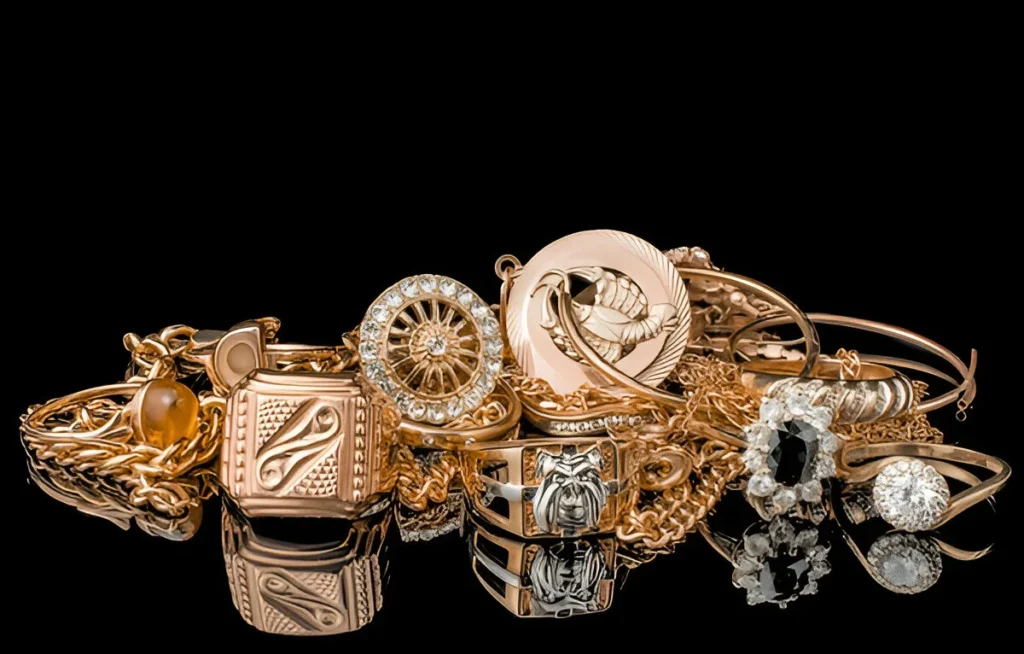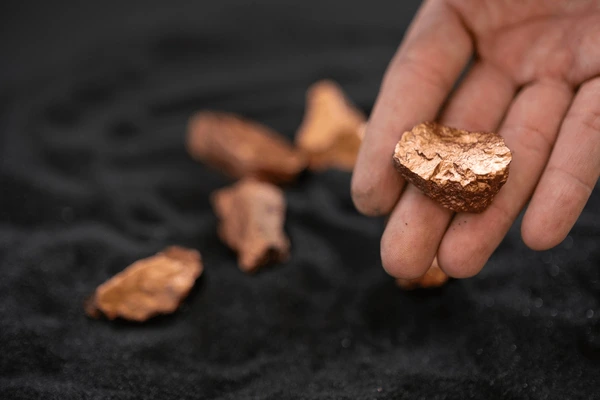Sayanava Sinha Roy
24.05.2025
Why More Investors Prefer Hallmarked Jewelry
Hallmarked jewelry ensures purity and authenticity, making it a preferred choice for investors seeking reliable value and trust in their gold investments, as often recommended by a reputable gold buyer who prioritizes certified quality and transparency in every transaction.
Gold has long been considered a safe haven for investors. Its intrinsic value, global recognition, and resilience during economic turbulence make it a sought-after asset. However, in today’s rapidly changing investment landscape, simply buying gold is no longer enough—investors are now looking for verification, transparency, and trust.
Table of Contents
This is where hallmarked jewelry plays a pivotal role. More and more savvy investors are choosing hallmarked pieces not only for their aesthetic appeal but also for the certainty of quality and resale value they offer. Whether you’re purchasing gold for investment, inheritance, or personal use, hallmarking is your assurance of authenticity.

What Is Hallmarked Jewelry?
Hallmarked jewelry refers to gold or other precious metal items certified for purity and stamped by an authorized agency. In India, this certification is typically done by the Bureau of Indian Standards (BIS), which sets the criteria and testing process for hallmarking.
Key Components of a Hallmark
Every genuine hallmarked piece of jewelry includes:
- BIS Logo: Proof that the item is certified by the Bureau of Indian Standards.
- Purity Grade: For example, 22K is denoted as 916 (91.6% pure gold).
- Assay Office Mark: Shows which government-approved laboratory tested the piece.
- Jeweler’s Mark: Unique identification of the manufacturer or seller.
- Year of Marking (Alphanumeric Code): Indicates the date of certification.
These marks together serve as an investor’s checklist, ensuring transparency and integrity in gold purchases.

Why Hallmarked Jewelry Matters to Investors
When it comes to investing in gold, purity is profit. Impure gold not only depreciates faster but also invites challenges during resale or valuation. Let’s explore why investors are increasingly leaning toward hallmarked gold:
1. Assured Quality and Purity
The biggest reason investors prefer hallmarked jewelry is the guarantee of purity. Without hallmarking, there’s no official validation of the metal content. Even a slight impurity can lead to significant losses over time.
With hallmarked jewelry:
- You’re legally assured of the purity grade.
- The chances of being misled by dishonest dealers are significantly reduced.
- It’s easier to compare prices across jewelers, since you’re sure of quality.
2. Higher Resale and Buyback Value
Whether you’re looking to liquidate in times of need or upgrade your gold portfolio, resale value becomes critical. Gold buyers, including banks, refiners, or professional dealers, prefer hallmarked pieces as it simplifies valuation.
- No need for additional purity testing.
- Faster transaction processing.
- Better offers due to verified purity.
3. Eligible for Loans and Financial Instruments
Many investors pledge gold as collateral for loans, especially during emergencies. Financial institutions prefer hallmarked gold because:
- The purity is certified, reducing risk.
- Collateral is more liquid and credible.
- Loan approvals are faster and less complicated.
4. Safer International Transactions
In a global market, hallmarking ensures your gold holds value across borders. Certified pieces are:
- Recognized by international jewelers and traders.
- More likely to fetch a fair market price abroad.
- Easier to sell, insure, or transfer globally.
5. Legal Protection for Buyers
In countries where hallmarking is legally mandated (like India from 2021 onward), consumers are protected under law. This reduces the possibility of fraud and ensures:
- Legal recourse in case of disputes.
- Transparent documentation for every purchase.
- Long-term asset safety, especially in inheritance or wealth transfer.
The Rise of Hallmarked Jewelry in Modern Portfolios
With increased financial awareness and digital access, today’s investors—especially younger generations—are more selective than ever. Here’s how trends are evolving:
Shift Toward Transparency
Consumers are demanding more transparency in gold investments. The BIS hallmark has become a gold standard, replacing the age-old trust-based buying method.
Digital Gold & E-Gold
Even in the digital space, platforms that offer digital gold emphasize hallmarked backing for physical delivery. This indicates the growing importance of certified purity across media.
Women and Investment Awareness
As more women take financial control, there’s a noticeable shift in how gold is perceived—not just as an adornment but as a solid, appreciating asset. Hallmarked jewelry bridges both worlds.
How to Check If Your Jewelry Is Hallmarked
Before you invest, it’s essential to verify that the gold item is genuinely hallmarked. Here’s how:
Simple Steps to Verify Hallmarked Jewelry:
- Look for All Four Marks: BIS logo, purity grade (e.g., 916), Assay Office mark, and jeweler’s ID.
- Use the BIS Care App: Scan the QR code (if available) to verify the certificate number and jeweler details.
- Ask for the Bill: Ensure it mentions the purity, hallmark number, and description of each item.
- Cross-check with the BIS Website: Look up the jeweler’s license and certification history.
Spotting Fake vs. Genuine Hallmarked Jewelry
Fake hallmarking is rare but not impossible. Here’s how to protect yourself:
- Buy only from BIS-certified sellers.
- Check for proper spacing and clarity in hallmark stamps.
- Avoid “too good to be true” deals that skip verification.
A bit of vigilance can save thousands and protect your hard-earned investment.

FAQs: What Investors Want to Know
Q1: Can I trust hallmarked jewelry bought from a local shop?
A: Yes, as long as the jeweler is BIS-certified and the jewelry has all required marks. Always ask for a bill with hallmark details.
Q2: Is there a price difference between hallmarked and non-hallmarked gold?
A: No significant difference, but hallmarked jewelry fetches better value during resale.
Q3: How often is hallmarking checked for accuracy?
A: Regular audits are done by BIS on licensed jewelers and Assay centers to maintain quality.
Q4: Can I get old gold hallmarked?
A: Yes, you can approach a BIS-recognized Assay center to test and certify your existing gold items.
Q5: Are all gold items required to be hallmarked now?
A: Yes, in many regions, it’s mandatory for gold jewelry and artifacts to be hallmarked before sale.
Trust Is the New Gold
As the investment world evolves, one thing remains constant: the need for trust. Hallmarked jewelry isn’t just a trend—it’s a fundamental layer of assurance that supports long-term investment goals.
Whether you’re buying gold for weddings, gifts, or future security, choosing hallmarked jewelry is no longer optional—it’s essential. It ensures you get what you’re paying for, and when the time comes to encash or upgrade, your decision proves worthwhile.
For any investor looking to make smart, secure, and sustainable choices, hallmarked jewelry is the gold standard—literally and figuratively.
Popular Post



